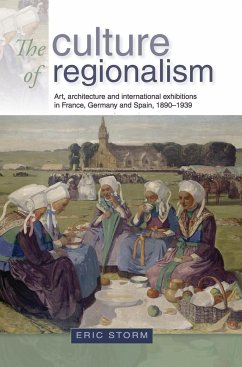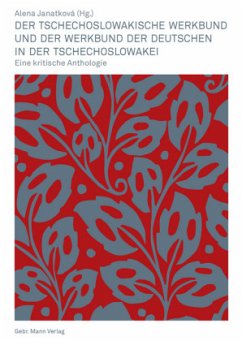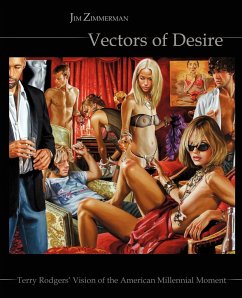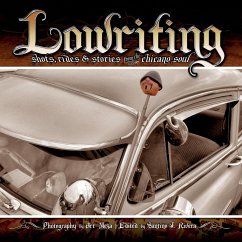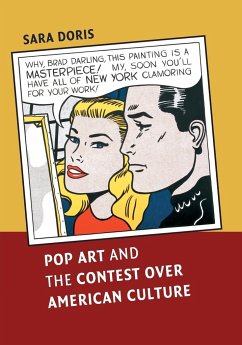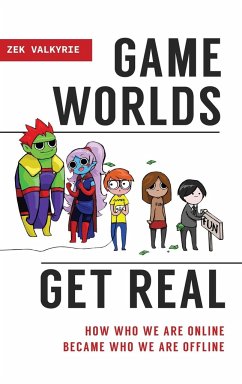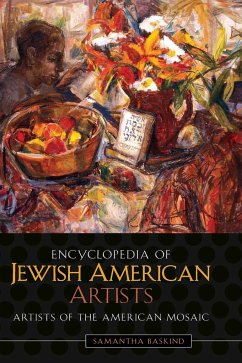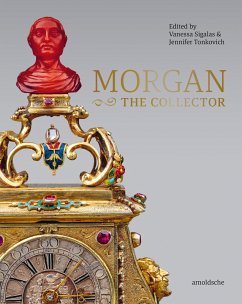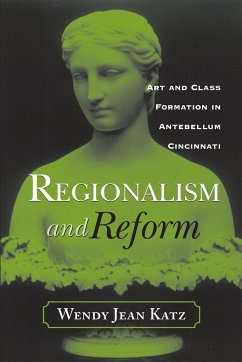
REGIONALISM AND REFORM
ART AND CLASS FORMATION IN ANTEBELLUM CI
Versandkostenfrei!
Versandfertig in 1-2 Wochen
33,99 €
inkl. MwSt.

PAYBACK Punkte
17 °P sammeln!
"This book is exceptionally smart, really one of the best books I've read in its interdisciplinary way. [. . .] I find it original, thoughtful, and useful." -Barbara Groseclose, The Ohio State University Before the Civil War, Cincinnati, Ohio, was considered the most important art center of what was then regarded as the U.S. West. In this book, Wendy Jean Katz explores the role of artists and art associations in moral and social reform in antebellum Cincinnati. Its leaders claimed for it the status of the future geographic and economic center of the nation, and supported art as part of their e...
"This book is exceptionally smart, really one of the best books I've read in its interdisciplinary way. [. . .] I find it original, thoughtful, and useful." -Barbara Groseclose, The Ohio State University Before the Civil War, Cincinnati, Ohio, was considered the most important art center of what was then regarded as the U.S. West. In this book, Wendy Jean Katz explores the role of artists and art associations in moral and social reform in antebellum Cincinnati. Its leaders claimed for it the status of the future geographic and economic center of the nation, and supported art as part of their efforts to forge a regional vision of morals and manners attractive enough to persuade their adoption nationally. An interlocking array of men, women, and associations cooperated to attach middle-class status to the cultivation of proper feelings and behavior. Art helped spread these values and draw people to a new identity based on them rather than on wealth, birth, or profession. Artists who believed in a moral purpose for art found themselves and their work aligned with urban boosters' and reformers' projects for attracting and assimilating a steady stream of immigrants to their vision of a harmonious urban culture. By analyzing artists Lilly Martin Spencer, Robert Duncanson, and Hiram Powers within this local discourse on taste and reform, their work emerges as participating in a process of class definition. At the same time, Katz upsets the idea of national culture as a one-way street from New York to the "provinces," suggesting instead that the "national" was created in localities by artists and their patrons. Wendy Jean Katz is assistant professor of art and art history at the University of Nebraska-Lincoln.



